12 Basic Books
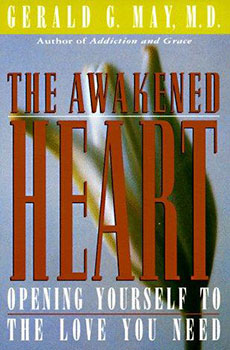 The Awakened Heart by Gerald G. May shows that people often turn to addictions to escape feelings of worthlessness and hopelessness. May presents a viable alternative: relying on God's grace rather than our own saving capacities.
The Awakened Heart by Gerald G. May shows that people often turn to addictions to escape feelings of worthlessness and hopelessness. May presents a viable alternative: relying on God's grace rather than our own saving capacities.
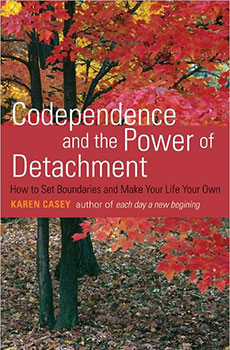 Codependence and the Power of Detachment by Karen Casey challenges those who are enmeshed with others to get out of that trap and taste freedom. Twelve Step programs advocate the art of stepping back or detaching from a controlling person and not allowing that person to determine your life and choices.
Codependence and the Power of Detachment by Karen Casey challenges those who are enmeshed with others to get out of that trap and taste freedom. Twelve Step programs advocate the art of stepping back or detaching from a controlling person and not allowing that person to determine your life and choices.
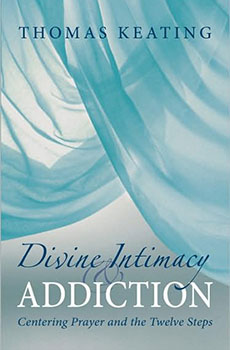 Divine Therapy & Addiction by Thomas Keating delivers a tribute to 12-Step programs and an interview with an articulate member of a 12-Step group. The real spiritual journey on the path of recovery depends on acknowledging the unmanageability of our lives.
Divine Therapy & Addiction by Thomas Keating delivers a tribute to 12-Step programs and an interview with an articulate member of a 12-Step group. The real spiritual journey on the path of recovery depends on acknowledging the unmanageability of our lives.
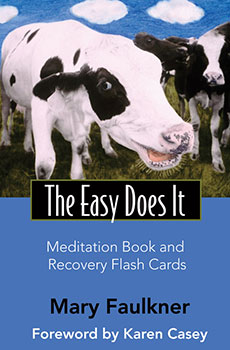 The Easy Does It Meditation Book and Recovery Flash Cards by Mary Faulkner are a very accessible and helpful resource designed to inspire, encourage, and entertain those with addictions. Here is an example of a slogan on a Flash Card: "Some days are definitely better than others."
The Easy Does It Meditation Book and Recovery Flash Cards by Mary Faulkner are a very accessible and helpful resource designed to inspire, encourage, and entertain those with addictions. Here is an example of a slogan on a Flash Card: "Some days are definitely better than others."
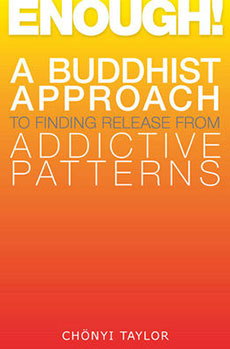 Enough! by Chonyi Taylor maintains from a Buddhist perspective that addiction is primarily a state of mind that can be changed by mindfulness, introspection, and equanimity. It is not easy to transform one's life but it can be done.
Enough! by Chonyi Taylor maintains from a Buddhist perspective that addiction is primarily a state of mind that can be changed by mindfulness, introspection, and equanimity. It is not easy to transform one's life but it can be done.
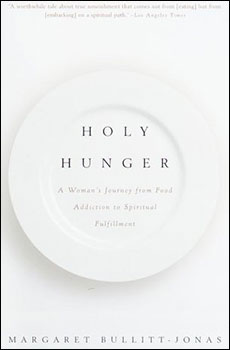 Holy Hunger by Margaret Bullitt-Jonas is about compulsive overeating, which the author calls a ferocious criminal act against the self. She recounts her eventual decision to enter Overeaters Anonymous and her struggle to come to terms with the spiritual yearning behind her addiction.
Holy Hunger by Margaret Bullitt-Jonas is about compulsive overeating, which the author calls a ferocious criminal act against the self. She recounts her eventual decision to enter Overeaters Anonymous and her struggle to come to terms with the spiritual yearning behind her addiction.
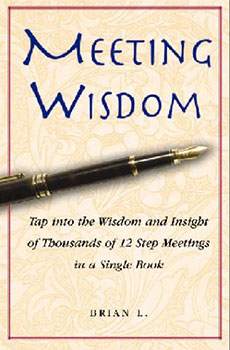 Meeting Wisdom by Brian L. is a wonderful resource by a man who has spent a decade in Alcoholics Anonymous and other recovery programs. He has put together his favorite sayings, quotes, and tips from the sharing and insights of others in these communities.
Meeting Wisdom by Brian L. is a wonderful resource by a man who has spent a decade in Alcoholics Anonymous and other recovery programs. He has put together his favorite sayings, quotes, and tips from the sharing and insights of others in these communities.
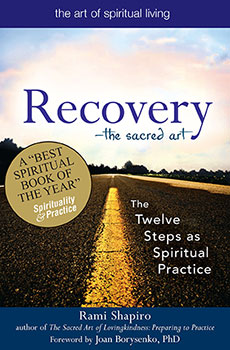 Recovery by Rami Shapiro draws upon the teachings and practices of the world's religions to illumine each of the 12 Steps. He makes the valid point that spirituality consists of behaviors such as being compassionate and doing justice -- counteracting the misconception that controlling people, places, and things is what life is all about.
Recovery by Rami Shapiro draws upon the teachings and practices of the world's religions to illumine each of the 12 Steps. He makes the valid point that spirituality consists of behaviors such as being compassionate and doing justice -- counteracting the misconception that controlling people, places, and things is what life is all about.
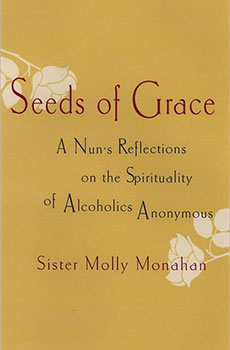 Seeds of Grace by Molly Monahan characterizes alcoholism as a physical, mental, and spiritual disease. Every meeting of Alcoholics Anonymous (A.A.) offers a crash course in dealing with the emotions, listening, cultivating new habits, and discarding destructive ones.
Seeds of Grace by Molly Monahan characterizes alcoholism as a physical, mental, and spiritual disease. Every meeting of Alcoholics Anonymous (A.A.) offers a crash course in dealing with the emotions, listening, cultivating new habits, and discarding destructive ones.
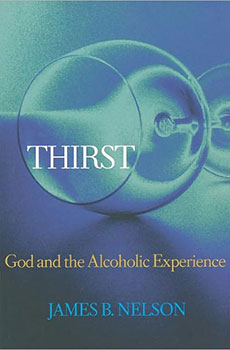 Thirst by James B. Nelson recounts his journey as a recovering alcoholic, the story of A.A. and the ways in which it has helped people, and the story of his own faith and its relevance to these experiences. This soulful book does a fine job conveying the mysteries, challenges, and roadblocks of addiction.
Thirst by James B. Nelson recounts his journey as a recovering alcoholic, the story of A.A. and the ways in which it has helped people, and the story of his own faith and its relevance to these experiences. This soulful book does a fine job conveying the mysteries, challenges, and roadblocks of addiction.
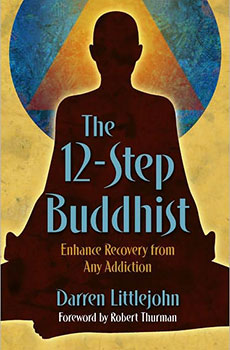 The 12 -Step Buddhist by Darren Littlejohn suggests ways to integrate Buddhism with a 12-Step recovery program. The author believes that Buddhism is the perfect tool for relief from suffering, ignorance, and attachment to people and ideas.
The 12 -Step Buddhist by Darren Littlejohn suggests ways to integrate Buddhism with a 12-Step recovery program. The author believes that Buddhism is the perfect tool for relief from suffering, ignorance, and attachment to people and ideas.
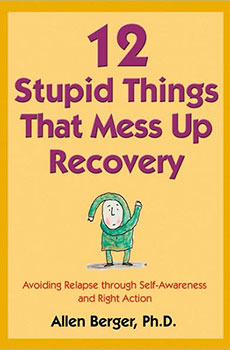 12 Stupid Things That Mess Up Recovery by Allen Berger offers a cogent overview of the beliefs and attitudes that can sabotage recovery. Humility is one of the main defenses against the ego's selfishness, unreasonable expectation, and emotional childishness.
12 Stupid Things That Mess Up Recovery by Allen Berger offers a cogent overview of the beliefs and attitudes that can sabotage recovery. Humility is one of the main defenses against the ego's selfishness, unreasonable expectation, and emotional childishness.
